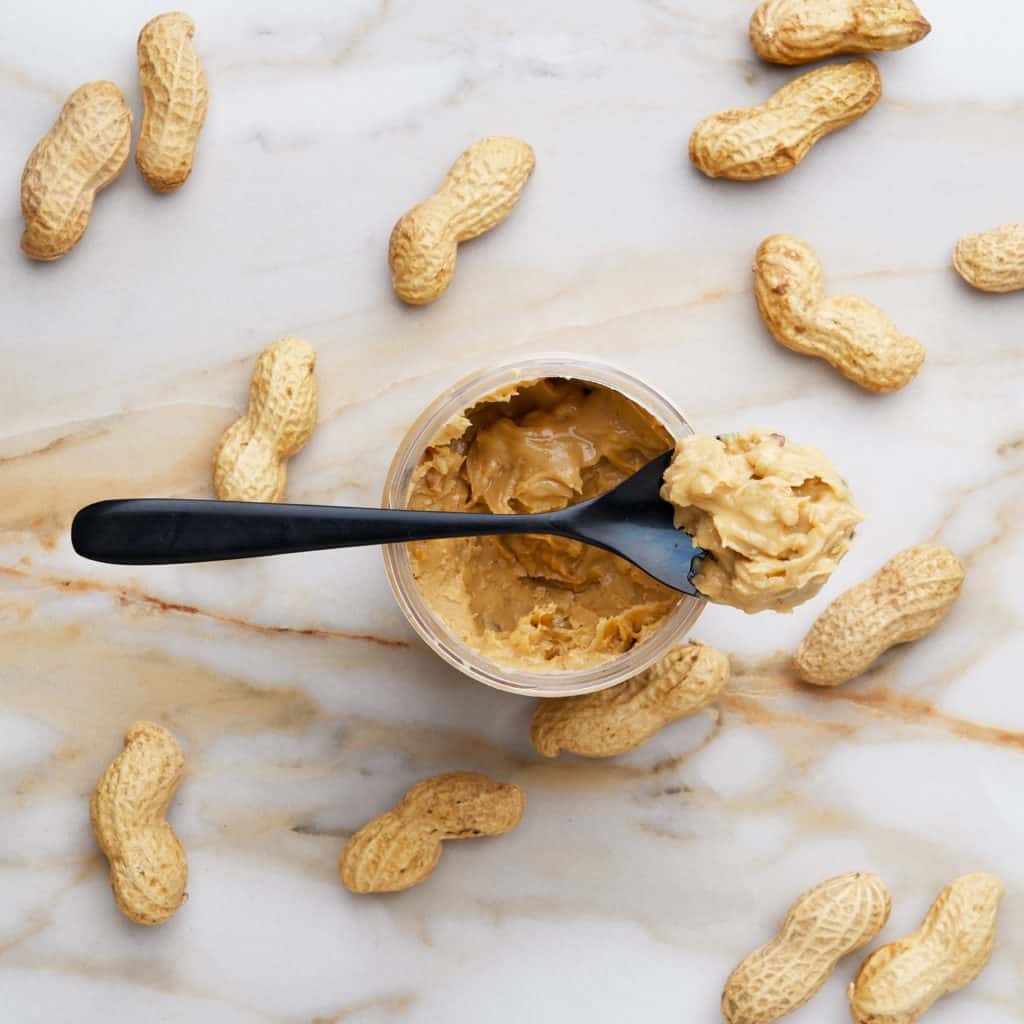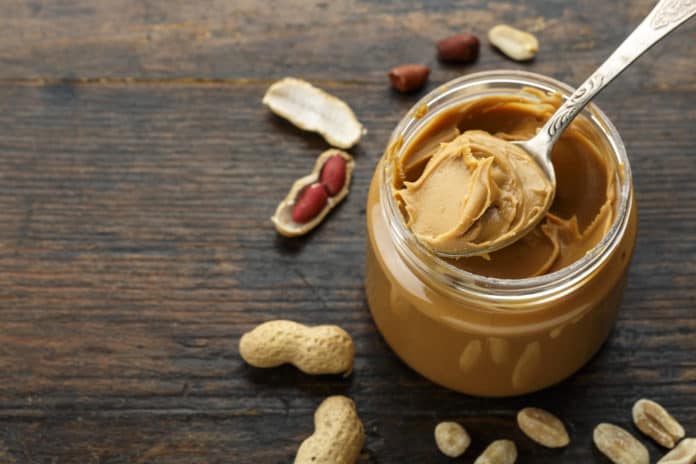Peanut butter is one of the world’s most popular spreads. Its sweet-savory and creamy flavor add taste to whatever you spread it on! It tastes delicious and the texture is simply amazing the way it sticks to the roof of your mouth before it melts is wonderful.
Peanut butter may provide a surprising number of benefits, as it is full of vitamins and minerals that can improve health. It is a pretty balanced energy source. You don’t need to eat tons of peanut butter to get the most of its benefits. Even the tiniest amount will do wonders.
Now, here are the benefits of its regular consumption of peanut butter:
- The happy trio of protein, fat, and fiber in peanut butter can give you the midday kick that you need. It’s a perfect idea for your midday snack, and will also help you prevent blood sugar crashes in the afternoons. Because it helps keep your blood sugar levels stable.
- Also high in antioxidants.
- Can help stimulate brain activity and memory since it contains various vitamins and minerals, including vitamin E, zinc, magnesium, and niacin. Niacin in peanut butter has been linked to cognitive decline and Alzheimer’s disease. Besides, there is some indication that niacin may help keep Parkinson’s disease at bay.
- Peanut butter and olive oil also give you a lot of monounsaturated fats. Stress affects brain function, and antioxidant and anti-inflammatory agents in peanut butter neutralize this damage. Eat peanut butter regularly to reduce anxiety and optimize your brain function. Furthermore, it contains the bioactive compound called Resveratrol, which may improve blood flow to the brain by up to thirty percent. This can decrease the risk of getting a stroke, and boost cognitive abilities.

- It may reduce your risk of diabetes. Because of the low glycemic score of peanuts, consuming peanuts regularly can help keep blood sugar stable and lower your diabetes risk. Researcher Rui Jiang, MD, of Harvard School of Public Health, explained that the monounsaturated and polyunsaturated fats in peanut butter can improve glucose and insulin stability. The study showed that women who ate a tablespoon of peanut butter at least five times per week had a 21 percent lower risk of type 2 diabetes than those that didn’t.
- Works to help you lose weight in two ways: by helping control your appetite and by suppressing blood sugar. Despite being high in fat and calories, peanuts do not appear to contribute to weight gain. Because, it is an excellent source of protein, containing eight grams in just two tablespoons. It is also a source of nearly two grams of fiber and twelve grams of healthy fat. This will make you control your hunger and late-night cravings.
Additionally, certain foods, especially processed foods and starchy foods, cause a spike in your blood sugar. Unstable blood sugar has been linked to obesity and diabetes. But, despite its natural sweetness and delicious texture, has a low glycemic index. Eating peanut butter is a way of consuming fats as well as protein and fiber without sending your blood sugar levels into a tailspin.
- it contains a substance called p-coumaric acid which helps in offsetting the damage done to cells associated with cardiovascular diseases. Observational studies indicate that eating peanuts, as well as other types of nuts, may protect against heart disease. Also, peanut butter contains more unsaturated fat than saturated fat making it a fat-friendly food that lowers the risk of cardiovascular and coronary heart disease.
So, Eating small amounts of peanut butter at a time will most likely not threaten your health or the health of your family members. That is, as long as you are eating 100 percent real peanut butter without any added ingredients like sugar, trans fats, and vegetable oils. Shop carefully and enjoy in moderation! Spoons up!

